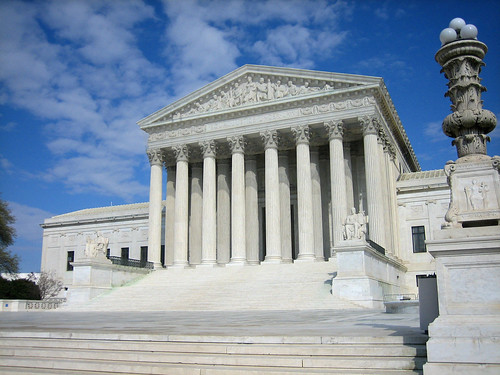
Freedom of Information

Top 400 Taxpayers See Tax Rates Rise, But There’s More to the Story
As Americans were gathering party supplies to greet the New Year, the Internal Revenue Service released their annual report of cumulative tax data reported on the 400 tax r...
read in full
Chlorine Bleach Plants Needlessly Endanger 63 Million Americans
Chlorine bleach plants across the U.S. put millions of Americans in danger of a chlorine gas release, a substance so toxic it has been used as a chemical weapon. Greenpeace’s new repo...
read in full
U.S. Industrial Facilities Reported Fewer Toxic Releases in 2014
The Toxics Release Inventory (TRI) data for 2014 is now available. The good news: total toxic releases by reporting facilities decreased by nearly six percent from 2013 levels. Howe...
read in full
Methane Causes Climate Change. Here's How the President Plans to Cut Emissions by 40-45 Percent.
UPDATE (Jan. 22, 2016): Today, the Bureau of Land Management (BLM) released its proposed rule to reduce methane emissions...
read in full
Living in the Shadow of Danger: Poverty, Race, and Unequal Chemical Facility Hazards
People of color and people living in poverty, especially poor children of color, are significantly more likely...
read in full
A Tale of Two Retirements: One for CEOs and One for the Rest of Us
The 100 largest CEO retirement funds are worth a combined $4.9 billion, equal to the entire retirement account savings of 41 percent of American fam...
read in full
Gasping for Support: Implementation of Tougher Air Quality Standards Will Require New Funds for State Agencies
New scientific research shows that the current levels of...
read in full



 The U.S. Supreme Court heard oral arguments on Jan. 19 in a case that could have far-reaching ramifications for public access to corporate-related information. AT&T, fighting to prevent disclosure of Federal Communications Commission (FCC) files investigating the company, has argued that releasing the documents under the Freedom of Information Act (FOIA) would damage the company's privacy. This argument comes despite the fact that the expectation of privacy has long been recognized only as an individual right, not a corporate one.
The U.S. Supreme Court heard oral arguments on Jan. 19 in a case that could have far-reaching ramifications for public access to corporate-related information. AT&T, fighting to prevent disclosure of Federal Communications Commission (FCC) files investigating the company, has argued that releasing the documents under the Freedom of Information Act (FOIA) would damage the company's privacy. This argument comes despite the fact that the expectation of privacy has long been recognized only as an individual right, not a corporate one. A
A  2010 was a banner year for government transparency, with many significant advances and only a few disappointments. However, there were other events outside the world of government openness that seeped into the collective consciousness, and one of the most notable was the rise of the Tea Party in American politics. For this year-in-review article, we decided to take a somewhat tongue-in-cheek approach to assessing and commenting on events in government openness, playing off the theme of tea. Thus, we present to you … the Teas of Transparency.
2010 was a banner year for government transparency, with many significant advances and only a few disappointments. However, there were other events outside the world of government openness that seeped into the collective consciousness, and one of the most notable was the rise of the Tea Party in American politics. For this year-in-review article, we decided to take a somewhat tongue-in-cheek approach to assessing and commenting on events in government openness, playing off the theme of tea. Thus, we present to you … the Teas of Transparency. When the 112th Congress convenes in January, attention will be focused on the newly Republican-controlled House. On transparency issues, House Republican leaders have sounded positive tones. However, it remains to be seen whether bipartisan consensus on meaningful transparency can be achieved or whether transparency will be wielded as a partisan weapon.
When the 112th Congress convenes in January, attention will be focused on the newly Republican-controlled House. On transparency issues, House Republican leaders have sounded positive tones. However, it remains to be seen whether bipartisan consensus on meaningful transparency can be achieved or whether transparency will be wielded as a partisan weapon. On Nov. 4, President Obama signed a new
On Nov. 4, President Obama signed a new 


